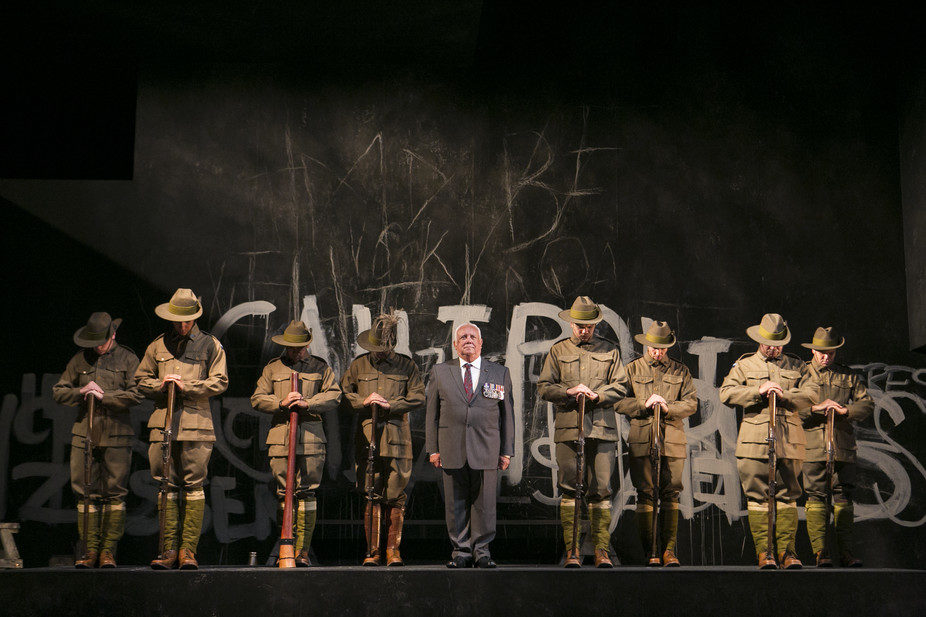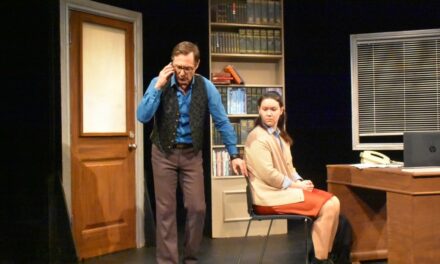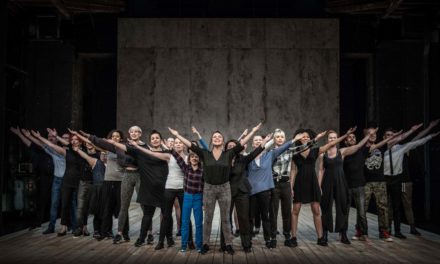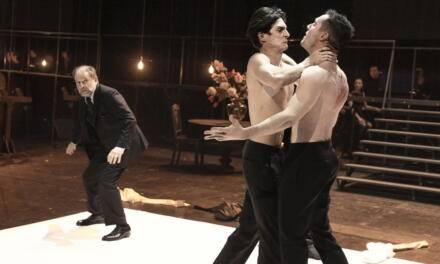In August 2012, I was invited by the Sydney Festival to work with Wesley Enoch, Artistic Director of Queensland Theatre Company, to assist in developing Black Diggers, currently playing as part of the 2014 Sydney Festival.
This major theatre project set out to explore Indigenous military service in the first world war, and reflect upon the remarkable absence of those stories from our national history and mythologising of that conflict.
Unknown soldiers
Black Diggers premiered at the Sydney Festival last weekend – and initial inspiration came from the discovery by festival directomythologizingels, that a young Aboriginal soldier, Private Rufus Rigney from Raukkan in South Australia, was buried in the memorial cemetery near Bertels’ hometown in Belgium.
How did this young man come to be buried on the other side of the world, fighting for a nation that refused to acknowledge him as a citizen?
It was our job to try to find this out, and also to find a way of translating this and other experiences into theatrical performance. Remarkably, these stories are not more widely known, despite the efforts and enthusiasm of researchers such as Rod Pratt, David Huggonson, Philipa Scarlett, Doreen Kartinyeri, Gary Oakley and Garth O’Connell, among many others.

Black Diggers on stage. Photo Credit: Jamie Williams/Sydney Festival
Beyond service records held as part of the collection of the National Archives of Australia, the photographic collection of the Australian War Memorial, a small number of scholarly works, and the occasional family history, the significant military service of Indigenous soldiers in the first world war remains a shameful gap in the Australian historical record.
Our research for Black Diggers primarily comprised of painstaking trawls through archival collections, and long conversations and consultations with various cultural and institutional experts. As a result of this process, we encountered the stories of many Indigenous soldiers, but in most instances, the stories were only fragmentary – incomplete accounts of small parts of the lives of these men.
Clearly, the research for this theatre project has only begun to scratch the surface of this subject. But the stories that did emerge to form the basis of the script for Black Diggers by Tom Wright are compelling and deeply moving.
Australia, 1914
When the first world war broke out in 1914, Aboriginal and Torres Strait Islander peoples were not considered citizens of Australia, but were rather the wards of the local “Protector of Aborigines”.
They were paid low wages, were often forced to live on reserves and mission stations, could not enter a public bar, vote, marry non-Aboriginal partners or buy property. They were actively discriminated against – and yet when the war was declared, many Indigenous men wanted to join up and fight for Australia.

Production still from Black Diggers. Photo Credit: Jamie Williams/Sydney Festival
The Defence Act of 1903 (amended in 1909) prevented those who were not of “substantially European descent” from being able to enlist in any of the armed forces. Many Indigenous men who tried to enlist were rejected on the grounds of race, but others managed to slip through the net.
In 1917, following the defeat of a conscription referendum, those restrictions were slightly eased. A new order stated that:
Half-castes may be enlisted in the Australian Imperial Force [AIF] provided that the examining Medical Officers are satisfied that one of the parents is of European origin.
Despite the difficulties, it seems that at least 1,000 Indigenous soldiers managed to join the AIF, out of a total of only 80,000 Indigenous people thought to be living in Australia at the time.
Some did so despite being rejected several times for being insufficiently white. Some lied about their age, name or parentage, and some were granted formal permission from their local Protector of Aborigines to serve.
Once past the initial barriers to enlistment, these soldiers fully integrated into the AIF. While almost exclusively of low ranks, the black diggers were paid the same as other soldiers, underwent the same training, and experienced the same hardships.
An unrecognized contribution
As Gary Oakley of the Australian War Memorial has noted on several occasions: “The Army was Australia’s first equal-opportunity employer”. In their civilian life, they had to endure constant racist slurs and attitudes. But in the trenches, any negative stereotypes about many Aboriginal diggers quickly disappeared as they lived, ate, laughed and died with these young men.

Production still from Black Diggers. Photo Credit: Jamie Williams/Sydney Festival
Indigenous diggers fought in every significant engagement of the war – from Gallipoli, to Palestine, to the Western Front. They served as infantrymen, machine gunners, light artillery and as light-horsemen. They won the respect of their fellow soldiers and won many bravery awards and commendations.
Many were wounded, some were captured, and dozens were killed. But the most tragic aspect of their service was not that they offered their lives for a country that did not recognize them as citizens, but came after they returned to Australia.
When they came back home they were shunned, their sacrifices ignored and their families oppressed even further by the government. Very few Indigenous diggers were given the land grants offered to returned soldiers, and in many cases, the land for grants to war veterans was taken away from Indigenous communities whose men had fought overseas. War pensions and back-pay were frequently denied, and very few Indigenous diggers were welcomed at their local RSL – except sometimes on ANZAC Day.
Black diggers today
Even though their small number seems relatively insignificant compared to the 416,809 men who enlisted in the AIF to fight in the first world war, the significance of the black diggers to modern Aboriginal history is immense.
In recent years, the long-forgotten service of these men has started to be acknowledged and celebrated. The Ipswich re-burial in April 2012 of Trooper Horace Dalton, 11th Lighthorse Regiment, with full military honors and traditional ceremony, is a welcome example of this shift.

Black Diggers memorializes the often-forgotten indigenous Australian Army soldiers in the First World War. Photo Credit: Jamie Williams/Sydney Festival
Today the bodies of Indigenous Australians who fell in the battlefields of France, Belgium, Turkey, and Palestine remain buried thousands of miles away from their ancestral homes.
Their brave spirits deserve the honor of remembrance – lest we forget again.
Black Diggers by Tom Wright, directed by Wesley Enoch, plays at the Sydney Opera House as part of the Sydney Festival until January 26. It will play at the Queensland Performing Arts Centre, as part of the Brisbane Festival from September 6-27.
This article was first published on www.theconversation.com. Reposted with permission. Read the original here.
This post was written by the author in their personal capacity.The opinions expressed in this article are the author’s own and do not reflect the view of The Theatre Times, their staff or collaborators.
This post was written by David Williams.
The views expressed here belong to the author and do not necessarily reflect our views and opinions.


















